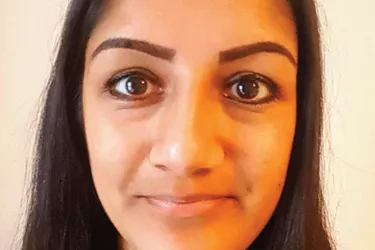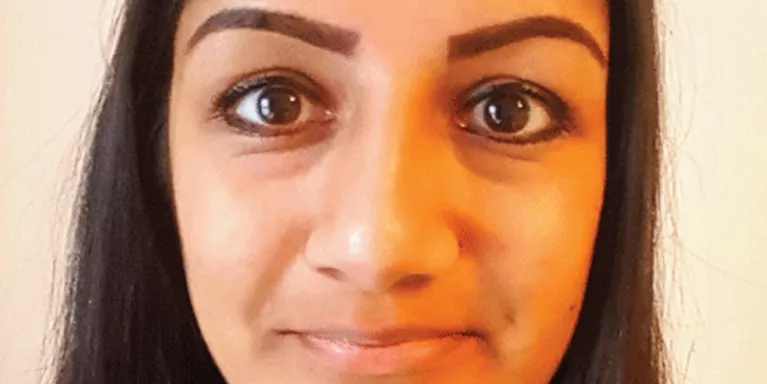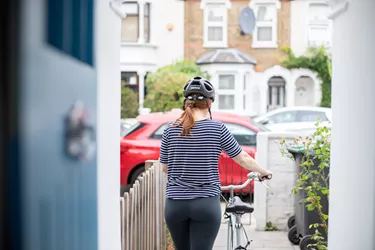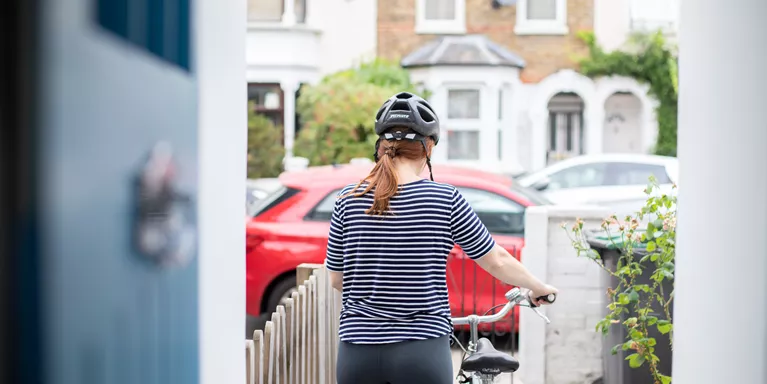What I’d say to my 18-year-old self: “You’ve got BPD.”
Liz explains how being diagnosed with borderline personality disorder has helped make sense of her life.
It was another of those asinine Facebook memes, so often engineered for phishing and scamming. This one didn’t seem particularly ominous, but it pulled me up short. “What three words would you tell your 18-year-old self?” And without missing a beat, I knew my answer, though I didn’t type it.
“You’ve got BPD.”
How different my life to date, and the lives of those close to me, might have been, had I known back then what I know now.
Relating to every trait
Instead, it was almost 20 years later, on holiday in Cornwall, that I discovered that Borderline Personality Disorder - or Emotionally Unstable Personality Disorder, as it is now often termed - was even a ‘thing’. Listening to a phone-in on a local radio station, I found myself relating to almost every trait listed by fellow sufferers: impulsive behaviours; lack of sense of self (I have always felt I have a quality of invisibility around me, my voice not heard or perhaps not even sure of what it wants to say); emotional instability and massive overreaction to perceived slights or, far worse, abandonment; self-harm; and a predisposition for intense but unbalanced or unhealthy relationships.
“Oh my God”, I exclaimed, turning to Alex (my husband and the longest suffering hero in the Northern Hemisphere) - “that’s me!”
From there began my bumpy nine year journey towards an eventual diagnosis, fuller self-awareness, and healing.
BPD is a complex condition which varies enormously in its intensity. Although I have previously self-harmed I have never been suicidal or psychotic, so my diagnosis is mild to moderate … which is a positive thing, of course, but also means I am far less likely to be able to access specialist therapies such as dialectical behavioural therapy which would target my highly charged emotional responses and help me live more peacefully within my own mind. What bliss that would be!
As well as being complex, BPD can be parasitic. In my case, it is fused with elements of attention deficit hyperactivity disorder, and I suspect each had a hand in the risky and impulsive behaviours and devastating choices made throughout my late teens and most of my twenties.
“I was described by a head teacher as “lurching from crisis to crisis” and expelled from two schools.”
As is so often the case, I believe both nature and nurture played a part. I had an unsettled childhood, changing schools many times. I was small, terrified, and an easy target for bullying. I went through a phase of running home from school when I was eight or nine, and remember my headmaster towering over me, pointing in my face and shouting, “I think you should be sent away!” I was made to attend sessions with a tight-lipped man and a woman whose accent I found frightening, who told me that, in life, “You have to do things you do not want to do”.
In my mid-teens, described by another head teacher as “lurching from crisis to crisis”, I found myself expelled from two schools.
Frequent misdiagnoses
My apparently rebellious behaviour towards my parents led to more counselling and, later, frequent misdiagnoses of anxiety and depression. Cognitive behavioural therapy and anxiety management groups did little to help me, and antidepressants simply stopped me from feeling. However, the people pleaser I was becoming ticked all the right boxes to ensure my counsellors would be able to evidence good progress. I know how rewarding it is to feel you’re doing your job well. One thing I have never lacked is empathy - it’s turning it off that’s the problem.
It is painful to reflect on the desperation of my early adulthood. In my late teens I had a small ‘glow-up’, and felt overly grateful for and receptive to male attention, regardless of the fact that I was in a relationship. Saying no didn’t feel like an option. I recall my wild rages and screaming, drunken fights with whoever I happened to be with at the time.
When my diagnosis of BPD was finally confirmed, following an assessment with a mental health practitioner from the Crisis team, I found myself in tears - mostly of validation; the knowledge that I was not simply a ‘dreadful person’ - but partly sparked by sadness that it had taken decades to discover this.
These days, of course, I behave very differently, but I am unconvinced that my programming has fundamentally changed. It’s more a case of coping mechanisms (giving myself time before responding; reminding myself that feelings are temporary no matter how strong) and the blessings of age, maturity and responsibility pinning me down to the straight and narrow. I thank serendipity for them! I have three amazing children, two of whom are now confident, well-adjusted young adults. The relief I feel that they are all that they are in spite of me is beyond measure.
I struggle to reconcile all I have done in the past with the happy marriage I have now: part of me will always be trying to make up to Alex what can never be made up. All we can do is continue to move forwards together.
“It would be nice to no longer disappear into my thoughts like a brooding, dissatisfied teenager.”
Despite my turbulent schooling I earned my degree and a PGCE, and I do my job well. It would just be nice for the straight and narrow to become my default; to no longer disappear so often into my thoughts and fantasies like a brooding, dissatisfied teenager. And to be able to stomach rejection or an unkind comment without adrenaline and cortisol flooding my system, making my heart race and causing me sleepless nights for a month. It would be nice not to have to constantly fight the urge to release the mental pressure of just being me, or to numb the pain of a tragic news story that might have happened years ago but which I just cannot shut off, with a large glass or two of wine.
BPD isn’t all terrible, though. Excess empathy can be painful but it also means I care. I care very deeply, even about people I have never met. And uber-sensitivity goes hand in hand with genuine appreciation of even the smallest things of beauty or acts of kindness. My overactive imagination has found a healthier outlet in creative writing, and I am currently collaborating with an illustrator in Germany. I’m no social butterfly, but I have close, honest, long-term friendships that provide me with the validation I need. I am, and always will be, hard work - but at least that work is in progress.


Information and support
When you’re living with a mental health problem, or supporting someone who is, having access to the right information - about a condition, treatment options, or practical issues - is vital. Visit our information pages to find out more.
Share your story with others
Blogs and stories can show that people with mental health problems are cared about, understood and listened to. We can use it to challenge the status quo and change attitudes.

















